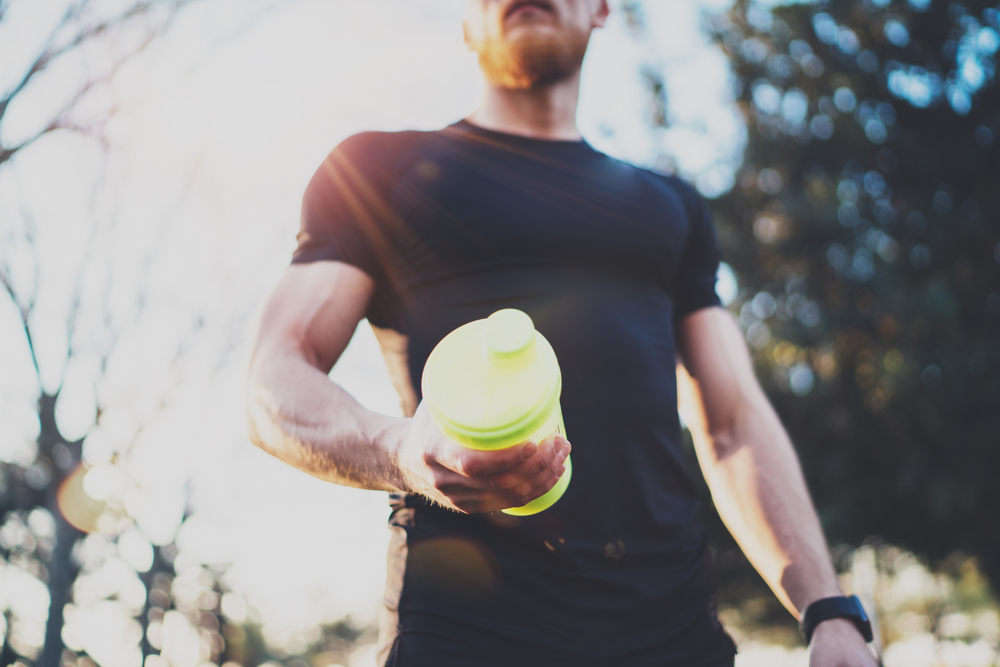
13 Feb Plant-Based Proteins: Pre- & Post-Workout Body Boosts
The secret to living a healthy lifestyle is balance. Humans need an equal amount of work and play, logic and whimsy, sweets and savoury. In order to get your brain to perform at it’s best in the classroom or boardroom, your other muscles require a fair amount of work in the field (or gym). But you can’t expect to keep your body running after hours if you don’t fuel your metaphorical machine. Conventional protein shakes and supplements are loaded with unpronounceable preservatives and chemicals that not only do long term damage to our bodies, but many are designed in such a way that makes our bodies heavily dependent on them. Essentially, if you take the products habitually, you get to enjoy the benefits. Once you stop taking the products, your body has to work overtime to recover from the sudden deficit. Luckily, there are natural plant-based protein alternatives that will help you gain lean muscle, give your body the energy it needs to make it through your workouts, as well as replenish and rejuvenate after you’ve sweated through a yoga class or soccer game.
PRE-WORKOUT NUTRITION
We are all guilty of underestimating how important preparing our bodies for physical exertion is. Truth be told, I have hit the gym for three hours on an empty stomach just to prove that I could. But poor pre-workout nutrition can cause symptoms of nausea, cramps and light-headedness.
Be sure to eat any of the following snacks 1 – 2 hours before your workout:
1. NUTS
Walnuts, almonds, pistachios, hazelnuts and cashews – pick your pleasure. Walnuts improve brain function, which you might underestimate when you’re working out. But your brain is the control tower. It needs to function at its optimum. When your brain is happy and healthy, it will ensure the rest of the machine performs as it should. Hazelnuts and other common nuts are all rich in electrolytes, which help prevent muscle cramp.
2. RICE CAKES
The trick with pre-workout nutrition is that you want to give your body enough fuel to make it through a workout without stuffing it so much that you’re lethargic from having to digest the food while exercising. Rice cakes are considered high-glycemic, which means they digest quickly and are a great source of energy. You can eat them plain or add a few lashings of nut butter for added protein and heart-protecting fat.
3. BANANAS, MANGOES & GRAPES
Fruit is always a great idea. The natural sugars will elevate your blood glucose, giving you a surge of energy without the inevitable crash that comes with foods packed with refined sugars.
Bananas have a high potassium percentage will ensure you make it through your cardio (additional health trick: shopping when you’re hungry is always a mistake carry a banana with you to avoid naughty snacking). Mangoes and grapes have a healthy amount of carbohydrates that fuel your muscles pre-workout.
POST-WORKOUT NUTRITION
Any fitness fundi with a ‘Get Psyched’ playlist has heard of the golden hour. This is the belief that if you starve yourself for an hour after your workout, you stand to burn up to double the calories. The myth has since been debunked.
Appropriate post-workout nutrition ensures fitness results, improves recovery time and decreases muscle soreness.
1. FRUIT SMOOTHIE
If you workout first thing in the morning, this is a great breakfast option that will ensure your energy levels sustain you until lunch. If you like to sweat out a day of work stress, a fruit smoothie will ensure you don’t wake up feeling exhausted. The natural sugars from strawberries, bananas, kiwis and blueberries, for example, will keep your glucose levels at a healthy place. Add coconut yogurt, which has up to 30% of your daily calcium and magnesium requirement – essential to bone health – and you’re set. Coconut yoghurt will also combat inflammation.
2. WHOLEWHEAT TOAST
The trick to not ruining all the exercise you’ve just done is to give your body the sustenance it needs to recover without overeating. Wholewheat bread is low GI, which means there is a slow release of energy, keeping you fuller for longer. Couple that with a nut butter or some smashed avocado and you get a healthy helping of fats which will protect your heart and brain. Avocado is also high in Vitamin K that will keep your bones strong and boosts your metabolism.
3. ROLLED OATS
Another low GI breakfast option (or evening meal if you’re the type who enjoys breakfast for supper) you’ll be glad you picked. Oats restores your muscle and liver glycogen, not only healing with your recovery, but ensuring your body can filter all the toxins you might be feeding it throughout the day. When digested, oats creates a kind of mucus that protects your digestive tract against any kind of irritation or inflammation. You can make your oatmeal with almond milk, top it with chia seeds to help with fibre and hydration, and berries for a naturally sweet finish.
4. SALAD WRAP WITH HUMMUS
It’s no secret that chickpeas are an exercise superfood. They’re full of protein and fibre, and contain a healthy amount of fat to promote heart and brain health. Add a little tahini and detoxing garlic to your chickpeas, and you have a great post-workout condiment to add to a filling salad wrap of carrots, pickled red cabbage, lettuce and onions. A whole wheat tortilla will keep you fuller for longer.



No Comments